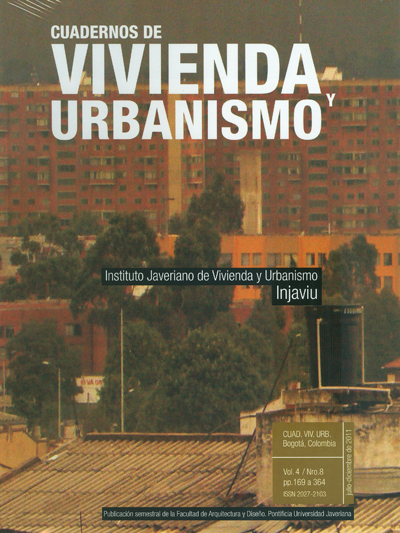Abstract
Housing are inhabited by differente people and cultures that implated themselves, as these cultures are part of their lives, provide identity to residents and are transmitted in this way to housing. Therefore, the standar model implemented inthe priority interest housing (VIP, by inicitials in spanish) specifically designed to relocate populations, is a physical constraint that conflict with the cultural patterns of the population and the generates conflicts associated with coexistence. this article explores the complexity of living in housing solutions built by the municipal administration since 2001 to date, specially those built in the Pajarito Macroproject (Northwest Medellin). The method is qualitative and part of an ethnographic approach, which was conducted from life stories and general comments. the insteres of this article explains the pervasiveness of this type of construction, lack of social responsibility when running housing, restrictive living conditions in the population and loss of indentity that is generated in the diferent social groups.
This journal is registered under a Creative Commons Attribution 4.0 International Public License. Thus, this work may be reproduced, distributed, and publicly shared in digital format, as long as the names of the authors and Pontificia Universidad Javeriana are acknowledged. Others are allowed to quote, adapt, transform, auto-archive, republish, and create based on this material, for any purpose (even commercial ones), provided the authorship is duly acknowledged, a link to the original work is provided, and it is specified if changes have been made. Pontificia Universidad Javeriana does not hold the rights of published works and the authors are solely responsible for the contents of their works; they keep the moral, intellectual, privacy, and publicity rights.
Approving the intervention of the work (review, copy-editing, translation, layout) and the following outreach, are granted through an use license and not through an assignment of rights. This means the journal and Pontificia Universidad Javeriana cannot be held responsible for any ethical malpractice by the authors. As a consequence of the protection granted by the use license, the journal is not required to publish recantations or modify information already published, unless the errata stems from the editorial management process. Publishing contents in this journal does not generate royalties for contributors.


